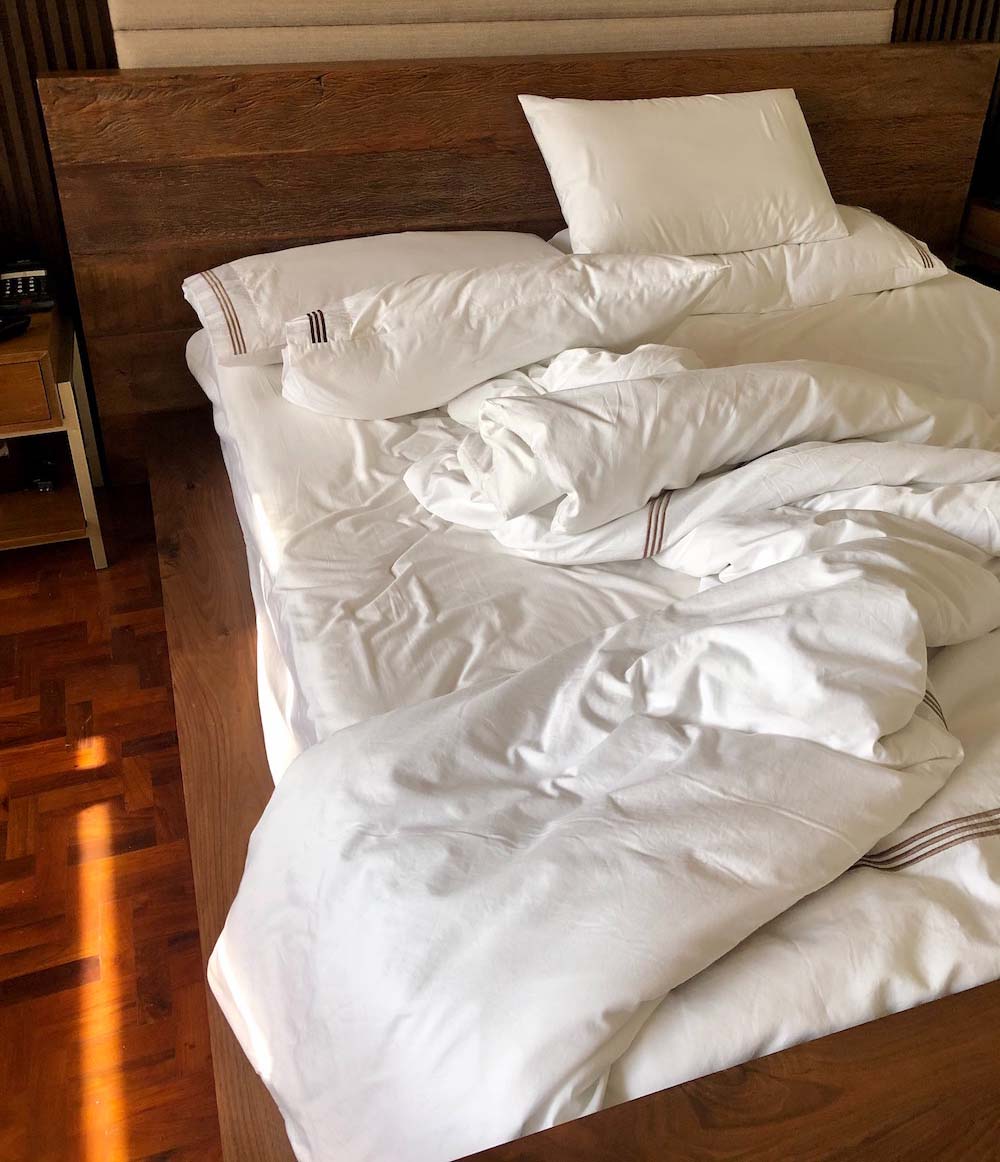It’s well known here at Hormona HQ that our readers are among the nicest, smartest and most tasteful on the entire web. So, we absolutely know that you know all of what’s to follow is 100 per cent true. But isn’t it nice that someone – or as it turns out several someones – has finally noticed. What are we talking about? The pandemic’s detrimental effect on everyone’s mental health. No doi, right? But, it seems women have fared worse in all aspects of the pandemic, particularly our mental health. We’re working overtime and missing personal “me time” and even worse, these things gravely affect our mental health.
It’s stressing us out
April 2021 saw the publication of a ton of mental health research studies looking at the detrimental effect of lockdown, furlough, financial uncertainty and all the lovely things that pandemics bring. Conducted in 30+ countries over the course of the last 18 months or so, every report found suffering in some form or another. Of course, Covid-19 has devastated families and communities and so a certain rise in levels of depression and anxiety is to be expected. But then something interesting happened. Many of the researchers sex-disaggregated their data. They actually split the results by gender. And found something that we all already knew. In addition to suffering under covid’s domestic and economic fallout, women are also suffering more when it comes to their mental health. Frankly, we are stressing.
Women across the board reported increased anxiety and depression, as well as post-traumatic stress. But the surprise was the numbers – they were huge. One report saw 66 per cent of women battling with increasing mental health challenges, versus 10 per cent of their male counterparts. That’s quite the gender gap, no? And while, as we mentioned, there are lots of reason why a pandemic can cause high levels of depression, the research found something far more troubling. Honestly, gang, if there was ever a time for us all to be involved in research into women’s mental health, it’s now.
Study, study, study
And here’s why. So, the pandemic caused a ton of economic problems for almost everybody. Furlough, redundancy, financial uncertainty, job losses can all increase your stress levels. Working more as in working overtime or less, as in nothing at all, than usual can also add to the worry. Sleepless nights, anxiety and depression are all just a step away in these situations. But some of this new research found that even when taking those things into account, the gender gap stays wide open. Women’s levels of depression stay the same regardless of our situation.
So what’s going on? Well, to be perfectly honest, no one is entirely sure. That’s partly because research into women’s mental health, particularly during a pandemic, is pretty scarce. There may also be more than one reason for the change. Life is complex and rarely defined by one single event or action. To start with, it seems that an increased unpaid workload during lockdown could have something to do with it. Unpaid work at home may include cooking, cleaning, childcare, looking after older loved ones – all the things we just do and that eats away at me time. In addition, that domestic work interferes with paid work in a big way. In fact, men working from home get two-thirds more paid work done than women. So we’re also massively behind with our actual jobs.
Working overtime
It also seems that men have not, in general, picked up a larger share of the domestic work during the lockdown. And, in some cases, just mentioning that fact can have dire consequences. Despite domestic abuse rates going up around the world during the pandemic, none of the mental health studies included it in their research. Then, of course, there’s the fact that women make up the majority of healthcare and frontline workers, teachers, and cleaners who perhaps were unable to work from home. They came face to face with the pandemic on a regular basis and most healthcare workers also ended up constantly working overtime.
Being Alone
Loneliness and social distancing have also been suggested as factors for our worsening mental health. And feeling alone doesn’t just happen when you’re living alone. You can be surrounded by people 24/7 and still feel as though no one gets it. And those feelings of loneliness reach worrying levels among pregnant women and new moms. In a study of around 6,000 women, 53 per cent reported elevated levels of loneliness, and over 30 per cent felt high levels of anxiety and stress. The results shocked the authors. While they expected higher levels of stress among those groups, “The number of women with significantly elevated symptoms was much larger than [that] previously published during the pandemic.”
And again, no one is really sure why. But one thing is very clear from the research. Our mental health is getting worse. Research is one part of the solution, but what’s really needed is so much more involved. As the UN so eloquently put it, the pandemic “exposed the deficiencies in public and private arrangements that currently function only if women play multiple and unpaid roles.” The message is that we do too much and do too much of it for nothing. As a result, of course, our mental health is suffering.
Time for some me time
But we were suffering before the pandemic. The mental health gender gap existed long before Covid-19. So this is where we’ve got to get a little bit selfish, gang. If you’re struggling with anxiety, depression, stress or you just don’t feel right, know right now that you are not alone. You aren’t. Talk to someone. A friend. A counsellor. Your doctor. Us. Tell someone you’re not okay.
Taking care of yourself is super important. As Mama Ru always says, if you can’t love yourself, how in the hell you gonna love somebody else? And it’s always true. Do something for yourself every day. No excuses. Lock yourself in the toilet if you have to and listen to your fave song/podcast/book. Cut down on the sugar and move around more and stop working overtime. But you knew that already. Here’s another thing that you probably already know. There’s a good chance, though, that you need reminding of it from time to time. So here goes. We all deserve, not just good, but great mental health. All of us. And we owe it to ourselves to take those first steps toward making that a reality. And ten minutes a day can make a world of difference.
Disclaimer: This website does not provide medical advice
The information, including but not limited to, text, graphics, images and other material contained on this website are for informational purposes only. No material on this site is intended to be a substitute for professional medical advice, diagnosis or treatment. Always seek the advice of your physician or other qualified health care provider with any questions you may have regarding a medical condition or treatment and before undertaking a new health care regimen, and never disregard professional medical advice or delay in seeking it because of something you have read on this website.





